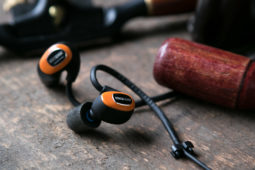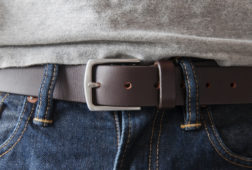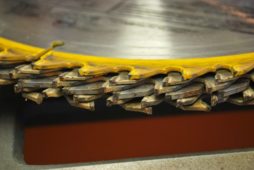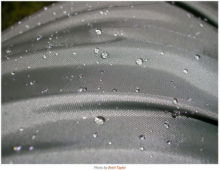Why You Should Still Keep a Paper Map in Your Glovebox
Somewhere in that no-man’s land between technophile and -phobe, I’ve pitched my tent and pass freely between the borders. I juggle my professional work on Google’s G Suite (especially Gmail, Keep, Calendar, Docs, and Sheets), but one of my most effective planning tools is a wood pencil and minimalist bullet journal in a blank notebook. I’m thrilled every time I thumb through magazines like WIRED, but I totally think A.I. is a crapshoot. In short, I keep a dynamic dialogue between new and old tech, because elegant solutions to the world’s challenges lie at just about every point in its history.
A perfect illustration of this is the fact that though I regularly rely on Google Maps for real-time driving directions, I still keep paper maps of my home state, some neighboring states, and even an atlas in my car. What’s the point? Read on for four good reasons.
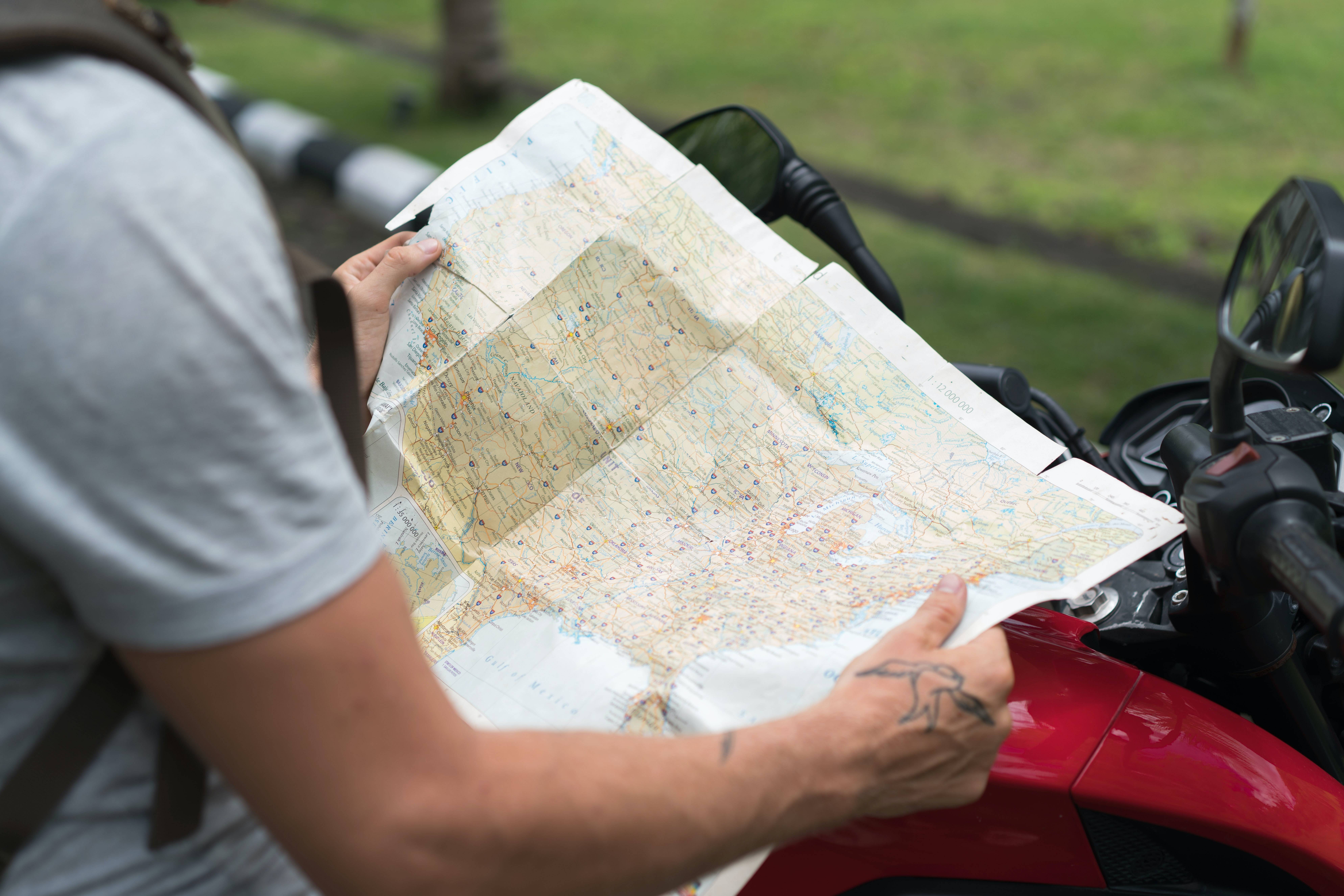
1. Tech isn’t perfectly reliable
Yeah, I get it: digital technology is awesome. But guys, it lives off of energy, and sometimes the flow unexpectedly hiccups: batteries die, service vanishes, you drop your phone in the toilet.
It’s ridiculously easy to interrupt your connection to digital information, so when the stakes are high, always keep a hard copy! All the energy is took to make the paper map is done and spent; the only thing you can do to interrupt printed information is to literally destroy it or misplace it, which means that a paper map can be strong when a digital map is weak.
Plus…save your battery power for taking photos and data for looking up the right place to eat. And if you’re doing it right, many road trips will take you into “No Service” areas. That’s why you’re visiting them in the first place.
2. Empowerment through skill-building
Again, tech is great—I rely on algorithms every day, but I don’t want them to do all of my thinking for me. What’s the solution? Building out a well-rounded toolbox with soft skills like the following:
• Navigation is the art of determining position and direction—when it relates to map-reading, you’re talking about the ability to translate a bird’s-eye view into real-time surroundings.
• Observation is another skill that can erode over time if you’re not careful. Paying attention makes you a better driver overall, and if you don’t use your GPS 24/7, you’re more free to actively key in to your surroundings instead of always waiting for auditory cues or dividing your eyes between the road and your screen.
• Taking responsibility — If you’ll allow me, I just have to throw this in: if you screw up directions by misreading a map, you have to own the blame instead of passing it on to your phone. Maybe it makes me an old curmudgeon to say this, but I think the world could use a little more of the underused skill of taking responsibility.
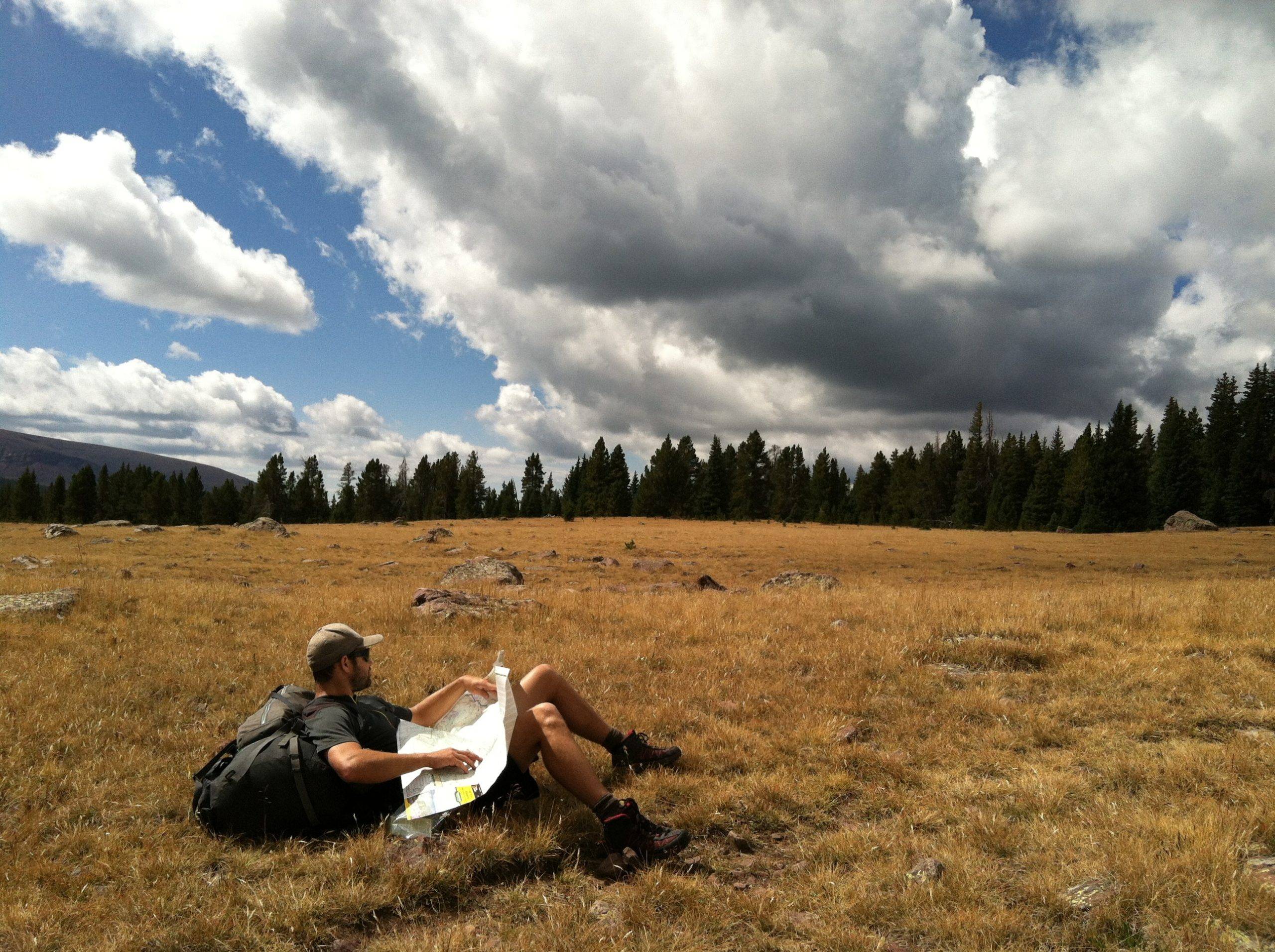
3. It’s (mostly) still a free powerful resource
Though they’re on the decline, a lot of states still give away maps at interstate welcome centers. They’re incredibly powerful resources because these things have been vetted by professional cartographers combining state-of-the-art digital imaging, the latest geographical data, and hundreds of years of traditional craft. Tax dollars pay for this stuff, so take advantage of it!
4. A paper map or atlas makes for all kinds of fun road trip conversations.
Once you’ve been in a car with friends, your kids, and/or your significant other for eight hours, you’re going to run out of things to talk about. A map serves double duty as wayfinding AND sparking all kinds of storytelling. You could plan a future trip once you realize that Atlanta and Charleston are only four hours from each other. You can learn things about childhood vacations, travel memories. And if you completely run out of things to talk about, you can always quiz each other on state capitals.

What do you think? Do you still keep paper maps or see them as a relic for history’s dustbin?
Looking for more ideas for what you should keep in your automobile? Check out ManMade’s guide to:


